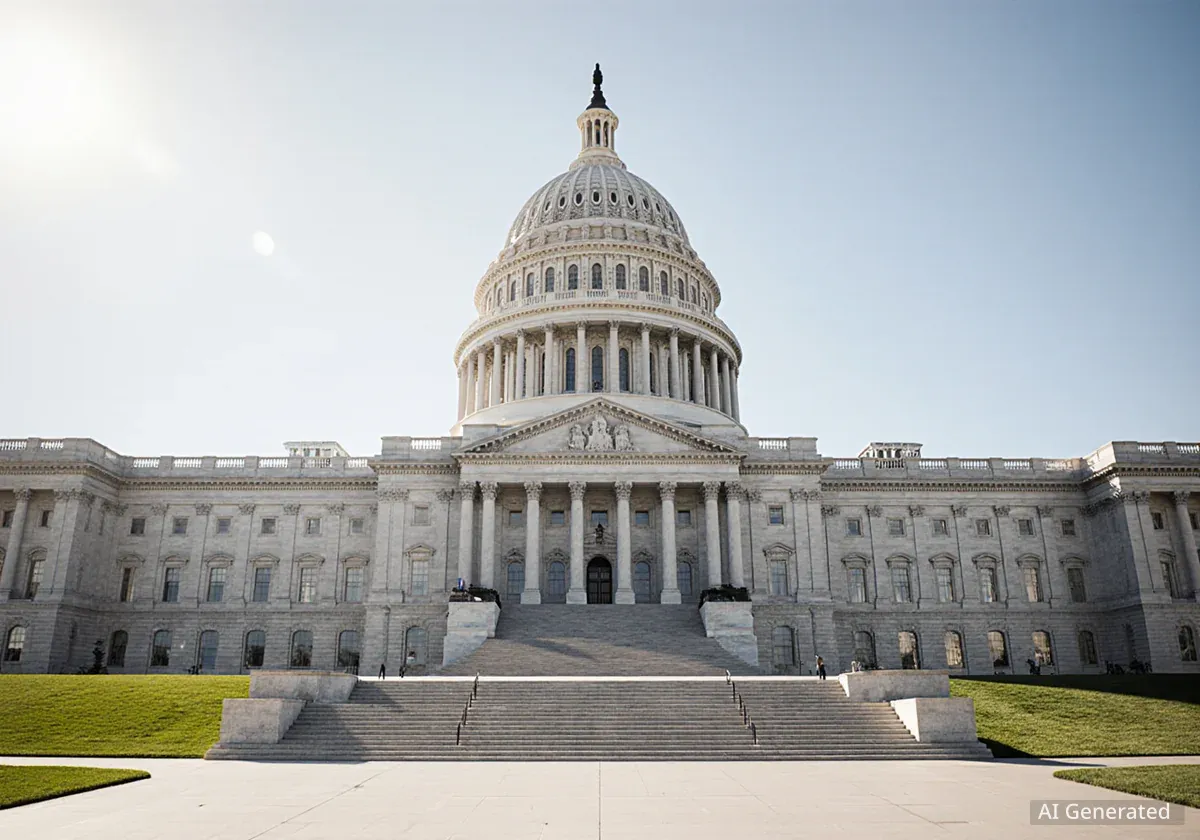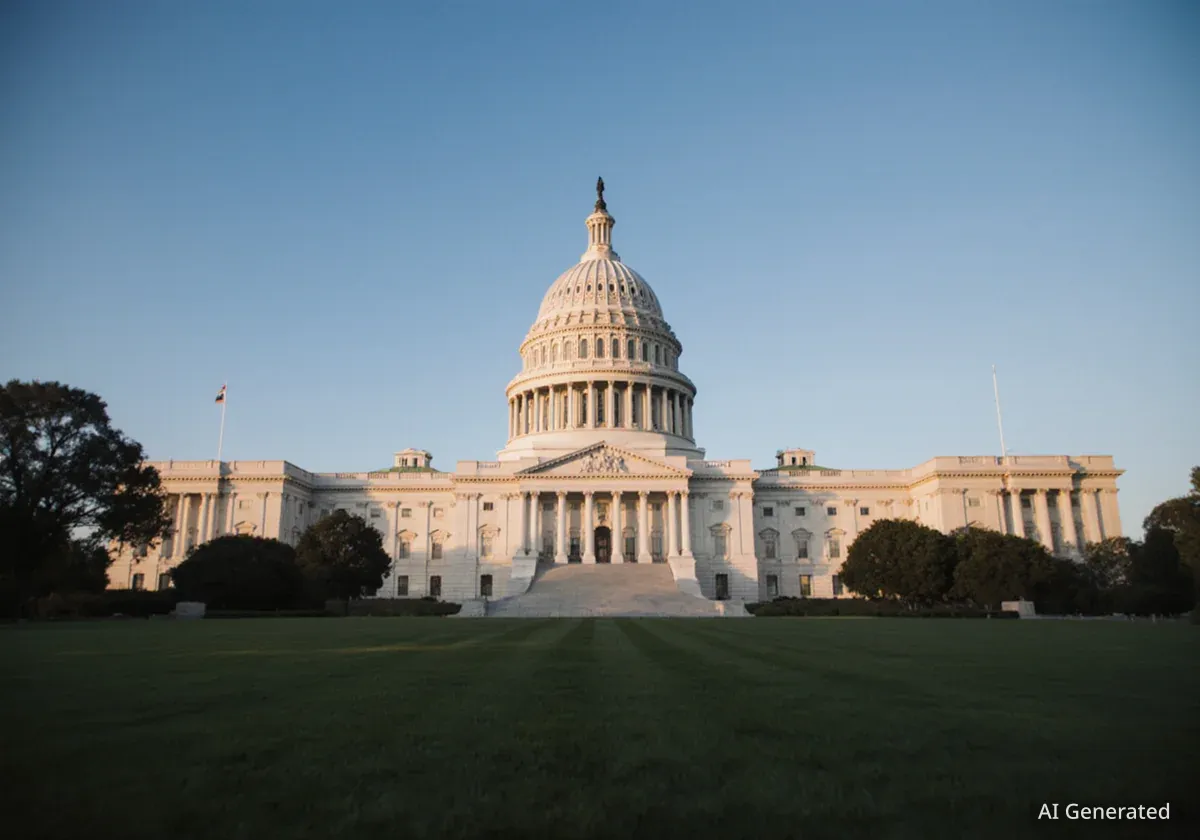The president of the Real Estate Board of New York (REBNY), a powerful industry group, has indicated a readiness to collaborate with mayoral front-runner Zohran Mamdani. This statement marks a significant shift in tone, as some in the real estate sector have actively opposed the democratic socialist candidate's campaign.
Speaking at a Crain’s New York Business breakfast event on Thursday, REBNY President Jim Whelan stated the industry intends to "work closely" with Mamdani should he win the election. Whelan's comments suggest a pragmatic approach from the real estate lobby as it prepares for a potential new political landscape in New York City.
Key Takeaways
- REBNY President Jim Whelan announced the real estate industry's intention to work with Zohran Mamdani if he is elected mayor.
- The statement was made during a Crain's New York Business breakfast on September 18, 2025.
- This represents a pragmatic shift, considering some real estate executives have strongly opposed Mamdani's candidacy.
- Whelan mentioned finding "common ground" with the democratic socialist front-runner, hinting at potential areas for future dialogue.
A Strategic Shift from New York's Real Estate Lobby
In a notable development for New York City's political and business spheres, the head of its most influential real estate trade association has adopted a conciliatory tone toward a mayoral candidate previously viewed as an industry antagonist. Jim Whelan, president of REBNY, conveyed a message of future cooperation with Zohran Mamdani.
The remarks were delivered at a well-attended Crain's New York Business breakfast, an event often used by city leaders to outline policy and economic vision. Whelan's statement suggests an acknowledgment of Mamdani's strong position as the front-runner in the mayoral race.
According to reports from the event, Whelan suggested he has found "common ground" with the candidate. This comment has sparked considerable discussion about how the city's powerful real estate interests might navigate a mayoral administration led by a democratic socialist.
Understanding REBNY's Influence
The Real Estate Board of New York, founded in 1896, is a major force in city and state politics. It represents owners, builders, brokers, and managers of real estate. The organization's lobbying efforts significantly influence policies related to zoning, property taxes, land use, and housing development.
Industry Navigates a Changing Political Climate
Whelan's public stance appears to contrast with the private sentiments of some real estate executives. Reports have indicated that certain figures within the industry have been working to prevent a Mamdani victory, concerned about his progressive policies on housing, development, and wealth distribution.
The shift from opposition to a public declaration of potential partnership signals a strategic pivot. Rather than continuing a potentially losing battle, REBNY's leadership seems to be preparing for the reality of a Mamdani administration and laying the groundwork for a working relationship.
"Real estate will ‘work closely with Mayor Mamdani,’" Whelan was quoted as saying, directly addressing the likely election outcome.
This pragmatic approach could be an attempt to secure a seat at the table in future policy discussions, ensuring the industry's voice is heard regardless of who occupies Gracie Mansion.
Potential Areas of Policy Discussion
The concept of "common ground" between a democratic socialist mayor and the real estate industry raises questions about where their interests might align or diverge. While specific details were not provided by Whelan, several key areas are likely to be central to any future discussions.
Possible Points of Contention
Policy areas that could create friction are numerous. Mamdani's platform is expected to include proposals that challenge the real estate industry's traditional business models.
- Rent Regulation: Strengthening rent control and tenant protections.
- Property Taxes: Reforming the property tax system, potentially increasing levies on high-value commercial and residential properties.
- Development Mandates: Requiring deeper affordability in new housing projects.
- Land Use Reviews: Implementing a more community-centric public review process for new developments.
Real Estate's Economic Footprint
The real estate industry is a cornerstone of New York City's economy. According to REBNY's own analysis, the industry generated over $32 billion in tax revenue for the city in the last fiscal year, accounting for more than 50% of the city's total tax collections.
Opportunities for Collaboration
Despite ideological differences, there may be areas where the goals of a Mamdani administration and the real estate industry could overlap. Finding these areas will be crucial for a functional relationship.
Potential areas for cooperation might include:
- Affordable Housing Creation: While methods may differ, both sides agree on the need for more affordable housing. A partnership could explore new financing models or zoning incentives.
- Infrastructure Investment: Both the city government and property owners benefit from investments in public transit, parks, and other essential infrastructure.
- Economic Recovery: Collaborating on strategies to revitalize commercial corridors and bring back office workers would be a shared goal for post-pandemic economic health.
Looking Ahead to a New Era in NYC Politics
Jim Whelan's statement is the clearest sign yet that New York's business establishment is bracing for a significant political shift. The real estate industry, long a dominant player in city politics, is publicly preparing to engage with a leader whose political philosophy fundamentally challenges its own.
The coming months will reveal whether this gesture of cooperation translates into a productive partnership or becomes the opening move in a protracted negotiation over the future of New York City's development.
For now, the message from the top of the city's real estate world is one of adaptation. As the political winds change, the industry appears ready to adjust its sails rather than fight the tide.




